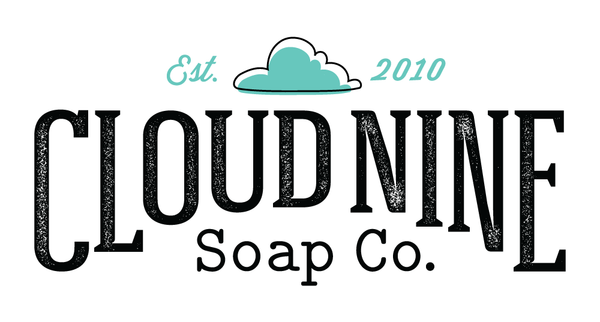Occasionally, a customer will ask me if I “use lye” in my soap? I guess the word “lye” has a bad reputation but I really don’t know why or how that rumor started; it conjures up the notion that “soap with lye” is somehow harmful or is an antiquated way of making soap. But the opposite in fact, is true. All soap is made with lye. If lye is not used, it’s not soap. Even the FDA agrees on this topic.
Lye is indeed used to make soap. Actually, the more accurate answer is that lye was in the soap, but it’s gone now. This isn’t smoke and mirrors or a sales pitch, it’s basic chemistry. The lye gets used up during the “saponification” process. Soap is actually “soap” within a few days of making it and is perfectly safe to use after a couple of weeks. "Curing" soap for 4-6 weeks insures a nice hard bar that lasts longer, but it's “soap” in 2 weeks.
Soap is the result of a chemical reaction between an acid and a base. When oil is combined with lye a reaction called “saponification” occurs. This saponification process leaves behind soap, and glycerin. The soap cleanses your skin and the glycerin, a humectant, attracts and seals moisture on your skin. Commercial companies often times remove the glycerin and resell it to cosmetic and pharmaceutical companies. Cold process soap makers, like myself, do not. My soap retains all of it's naturally occurring glycerin.
“Lye” is actually a solution. It is created when a liquid (water, beer, milk) is combined with sodium hydroxide to make bar soap, or potassium hydroxide to make liquid soap. We soap makers like to pretty up our bars by adding colorants, essential oils, herbs, fragrance and a whole lot of creative things but none of those things do anything to improve the cleansing property of soap. Fancy additive do make a lovely bar of soap and in some cases a very expensive bar of soap, but all that is really needed to make soap is oil and lye. It’s as easy as that and anything else is a lie (pun intended).
The soap makers of my grandmothers generation, many of whom were farmers as was my own grandmother, used rendered fat (tallow) from the butchering of a cow or pig to make soap. Tallow is still a common ingredient in soap, it’s simply disguised on the label by its chemical name, “sodium tallowate”. Tallow does make a fine bar of soap, and it’s an inexpensive oil option as well; while I am not opposed to tallow-based soaps, I just don't care to work with tallow so I make only vegetable oil and nut butter based soaps. I choose my oils/butters for their skin conditioning, cleansing, and lathering properties in that final bar of soap. This is where the chemistry of soap making gets really fun! There are so many oils to choose from with a price range that is staggering. Sadly, lye heats up to over 220 degrees so it burns off delicate additives, including many essential oils.
Fun fact: the FDA requires that in order to call a product "soap", it must be made with oil and lye and it must be labelled "soap" right on the front of that label. So buyer beware: if it does not say soap on the front of the package, it is most likely not soap. It’s really a solid detergent disguised as a “body bar” or “beauty bar”. Detergents are cheap to make and strip your skin of it natural oils leaving your skin dry and itchy and in some case, dirty. You might as well bathe in your laundry powder or dish washing soap. It’s the same thing. Read labels my friends.
So there you have it. No lye? No soap.


2 comments
I have always wondered about the chemistry of soap because I have sensitive skin. Thanks!
That’s a great explanation! Especially getting into the difference between melt&pour and cold processed! Thanks